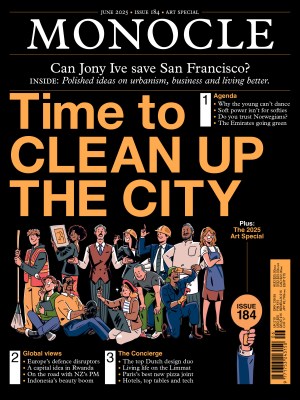
Issue 69
Doing the Soft Power Shuffle: how to be a winner in 2014. Sometimes all you need to get your way is a good recipe, an open door, charming exports and a way with architecture. A Monocle forecast.
In This Issue
Oops! No content was found.
Looks like we no longer have content for the page you're on. Perhaps try a search?
Return Home

